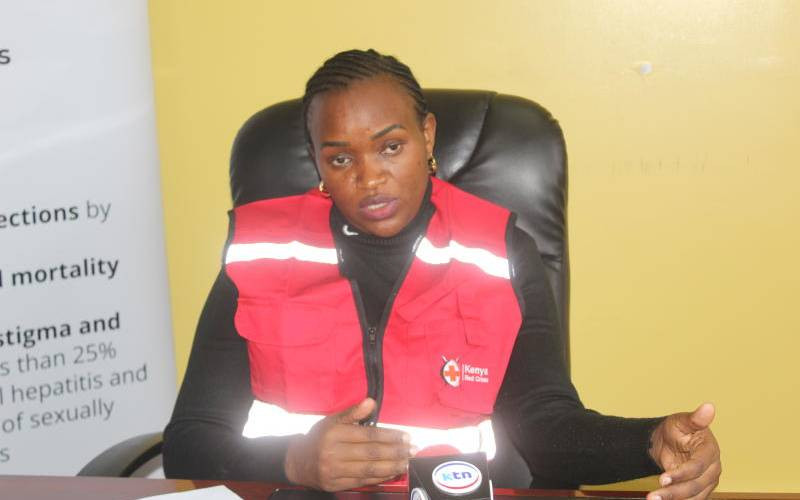The Kenya Red Cross Society has stepped up its HIV prevention efforts as foreign aid support continues to decline. As a principal recipient of Global Fund HIV grants, the organisation is focusing on community-driven strategies to prevent new infections, particularly among mothers and their children.
Central to this effort is the use of mentor mothers women living with HIV who support pregnant women and new mothers through counselling, treatment adherence, and follow-up. These mentors deliver antiretroviral therapy (ART), provide psychosocial support, and help overcome barriers such as stigma, distance to health facilities, and poverty.
Recent data from national health programs indicate a troubling rise in mother-to-child transmission ratesfrom 7.3% in 2023 to 9.3% in 2024 highlighting the need for urgent intervention. Much of this increase is seen in counties with traditionally lower HIV prevalence, such as Mandera, Wajir, Samburu, West Pokot, and Isiolo. In contrast, high-burden counties like Siaya and Homa Bay are reporting progress, with Siaya already meeting the World Health Organization’s elimination threshold of less than 5%.
A key concern is the delay in antenatal clinic (ANC) visits, with many women seeking care only after six months of pregnancy. Early ANC enrolment is essential for timely HIV testing and intervention. To address this, peer-led outreach programs are being scaled up to identify and support women early in pregnancy.
Food insecurity and economic hardship in semi-arid regions are also contributing to treatment challenges, as basic survival often takes precedence over consistent HIV care. These regions require context-specific solutions that address both health and social needs.
Children remain disproportionately affected, with only 75% of babies born with HIV receiving treatment. Viral suppression in children is at 66%, a significant gap in the country’s goal to eliminate infant HIV infections by 2030.
The Red Cross is also targeting adolescents, a group recording a growing share of new infections, with programs that promote early testing, informed decision-making, and safe sex practices.
In addition to prevention, the organisation is enhancing access to services like oral and injectable PrEP, condom distribution, and awareness campaigns. The “Undetectable = Untransmittable (U=U)” principle is at the heart of efforts to achieve viral suppression and prevent transmission.
Integrated drop-in centres have been introduced to existing health facilities to reduce stigma, enhance sustainability, and improve access among marginalised groups.

